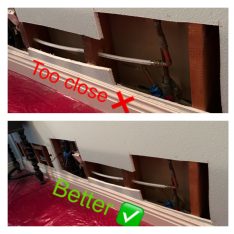My Hot Water Heater is Leaking! What do I do?
Discovering a leak in your hot water heater tank can be a stressful situation. Not only does it potentially mean water damage to your home, but it also disrupts your daily routine. However, it’s essential to address the issue promptly to minimize damage and inconvenience. In this blog post, we’ll discuss what steps to take when faced with a leaking hot water heater tank.
1. Turn Off the Water Supply:
The moment you notice a leak, the first step is to turn off the water supply to the hot water heater. This helps prevent further water from entering the tank and exacerbating the leak. Locate the shut-off valve connected to the water heater and turn it off clockwise.
2. Turn Off the Power:
If you have an electric water heater, switch off the power at the circuit breaker. For gas water heaters, turn the gas valve to the “off” position. This prevents the water heater from continuing to heat water, reducing the risk of damage or injury.
3. Assess the Damage:
Once you’ve shut off the water and power, assess the extent of the damage caused by the leak. Check for any water accumulation around the tank and inspect nearby walls, floors, and belongings for signs of water damage. If the leak is severe or has been ongoing for some time, it’s crucial to address any water damage promptly to prevent mold growth and structural issues.
4. Determine the Cause of the Leak:
Identifying the source of the leak can help determine the appropriate course of action. Common causes of hot water heater tank leaks include corrosion, loose fittings, pressure valve issues, or cracks in the tank itself. If you’re unsure about the cause or how to proceed, it may be best to contact a professional plumber for assistance.
5. Decide Whether to Repair or Replace:
Depending on the severity of the leak and the condition of your hot water heater, you’ll need to decide whether to repair or replace the unit. Minor leaks caused by loose fittings or valves may be fixable with simple repairs. However, if the tank itself is corroded or has significant damage, replacement may be the best option to ensure reliable hot water supply and prevent future leaks.
6. Schedule Professional Assistance:
If you’re uncertain about how to proceed or lack the necessary tools and expertise, it’s wise to enlist the help of a professional plumber. A licensed plumber can accurately diagnose the issue, recommend the most appropriate solution, and perform any necessary repairs or replacements safely and efficiently.
7. Take Preventive Measures:
Once the leak has been addressed, consider taking preventive measures to avoid future issues with your hot water heater. Regular maintenance, such as flushing the tank to remove sediment buildup and inspecting for signs of corrosion or wear, can help prolong the lifespan of your water heater and prevent leaks from occurring.
Conclusion:
Dealing with a leaking hot water heater tank can be a challenging experience, but taking prompt action and following the steps outlined above can help mitigate damage and ensure a swift resolution. Whether it’s shutting off the water supply, assessing the damage, or seeking professional assistance, addressing the issue quickly is key to minimizing inconvenience and restoring peace of mind in your home.
